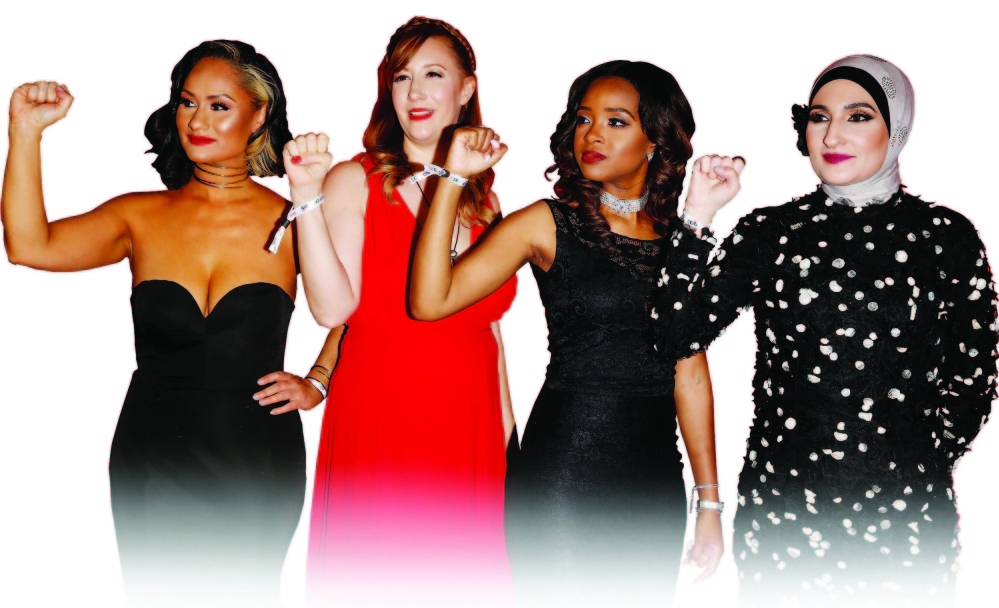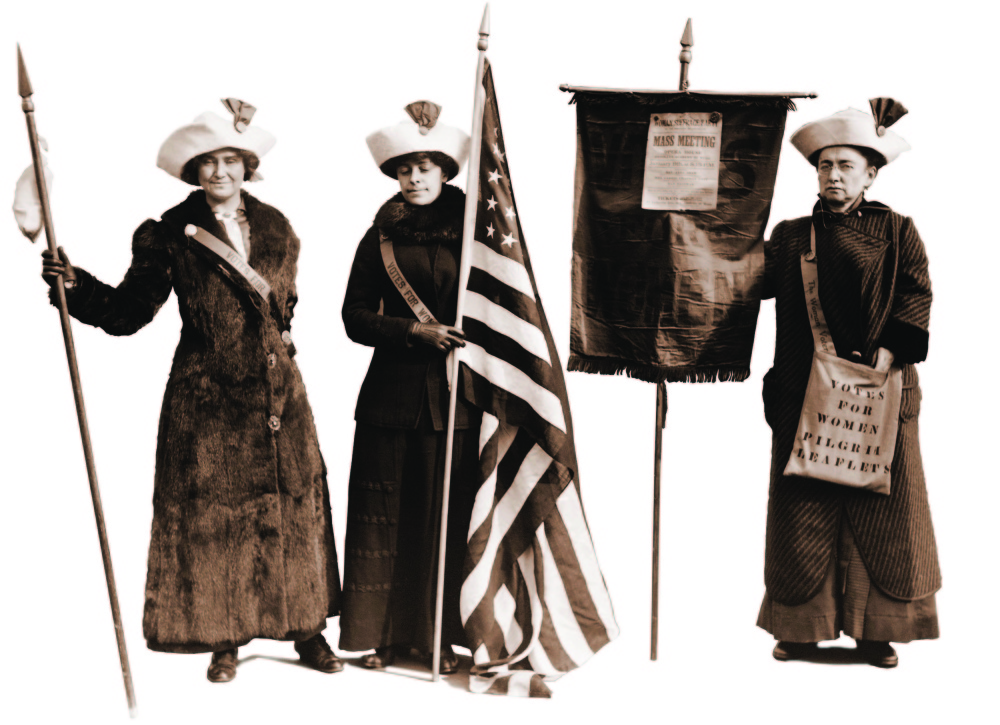History has a marvelous way of hiding itself amid the honking horns of the day. Events that seem to be earth-shaking, in the moment, often turn out to have been little more than the loud noise of a passing parade.
Most of us assume that history must be made by the famous and powerful people who fill out history books, and sometimes that’s true. But more often than not history arises from deeper currents in a society, percolating just below the surface.
While we’re all riveted, these days, by the daily tweet-bursts of Donald Trump, larger movements are stirring in America that may do more to shape the country’s future than Trump or the current Congress.
Trump’s election, and what it says about America today, has inspired a surging backlash that is showing itself in town halls and public events, online commentaries and letters to the editor across the country. It will undoubtedly become a major factor in the mid-term congressional elections next year and the presidential election that follows.
Part of that backlash is fueled by the emergence of a re-energized and broader women’s movement, which announced its arrival on the day after Trump’s inauguration, when as many as 5 million people participated in women’s marches across the world, including over 400 rallies in the U.S. and another 168 in 81 other countries, spanning all seven continents.
Since then, a wide array of “resistance” organizations have sprouted across the country, mobilizing action at all levels to protect not only women’s rights but also economic and social justice, the environment and health care, and more.
That burst of activity doesn’t describe itself as a women’s movement, and in fact it isn’t. It is something larger. But in almost every case, women – both young and old – are leading the charge and providing the energy and drive that is essential for transformative change.
Where this will all go remains to be seen, but it’s worth noting that most of the key turning points in America’s continually unfolding story, going back to the country’s founding, have been associated with energized and determined mass movements for positive change.
The American Revolution was sparked by farmers, shop owners and patriots in Massachusetts long before Washington and Jefferson rose to fame.
Martin Luther King Jr. would probably be unknown to us but for the tireless work of thousands of black ministers and activists who came before him.
The labor movement, without a widely known and stirring leader, nonetheless brought us the 40-hour workweek, the rise of the middle class and Social Security.
And the women’s movement, through the work of eight generations of activists, has made the equality of women so much of a mainstream idea that today’s high school and college students hardly imagine a time when gender decided whether you could vote, own property, go to college, have accounts in your own name or control when and if you have children.
The modern women’s movement in America started, in some ways, in a small tearoom in upstate New York, in 1848. There, a group of women, led by housewife and mother Elizabeth Cady Stanton, shared their frustration over the plight of women, and determined to do something about it. Inspired by the lofty goals and stirring words of the American Revolution, just 70 years before, they asked a simple question: Why was it not “self evident” that all men – and women – were created equal?
Their question was a spark that ignited women’s conventions across the country. Seventy-two years later, after much toil and personal abuse, these “suffragettes” at last won the right for women to vote, which would open doors for others who would follow.
Forty years later came the second great wave of the women’s movement, in the 1960s, when a new generation was asking questions about the country’s priorities and wars, the environment and women’s roles. That work was so successful that a woman just won the popular vote for president, held back only by archaic rules that give more power to small rural states than to the country’s voters.
Now, a new generation is picking up the work, hand in hand with those who came before them, in what history might well see as the third wave of the women’s movement.
And they have much unfinished work to do. This week, the Maine Legislature is going to take up, once again, the issue of whether or not our state constitution should be gender neutral, as it debates the Equal Rights Amendment, sponsored by Rep. Lois Reckitt and Sen. Eloise Vitelli.
Democrats will almost unanimously support it, as they have for decades. Republicans will pat the girls on the head, as they do, and say, “Now, now, don’t be upset. You already have all the rights you need.”
Reckitt is something of a hero for the women’s movement in Maine. A 72-year-old tireless advocate for women, for decency and for common sense, she’s been fighting to pass an Equal Rights Amendment since 1972.
If she doesn’t win this year, she’ll be back at it next year and every year until Maine, and the country, finally do the right thing.
The good news is that Lois Reckitt has lots of new allies these days, who are determined to finish the work that her generation took on, and pushed forward.
Alan Caron is the owner of Caron Communications and the author of “Maine’s Next Economy” and “Reinventing Maine Government.” He can be contacted at:
Send questions/comments to the editors.




Success. Please wait for the page to reload. If the page does not reload within 5 seconds, please refresh the page.
Enter your email and password to access comments.
Hi, to comment on stories you must . This profile is in addition to your subscription and website login.
Already have a commenting profile? .
Invalid username/password.
Please check your email to confirm and complete your registration.
Only subscribers are eligible to post comments. Please subscribe or login first for digital access. Here’s why.
Use the form below to reset your password. When you've submitted your account email, we will send an email with a reset code.